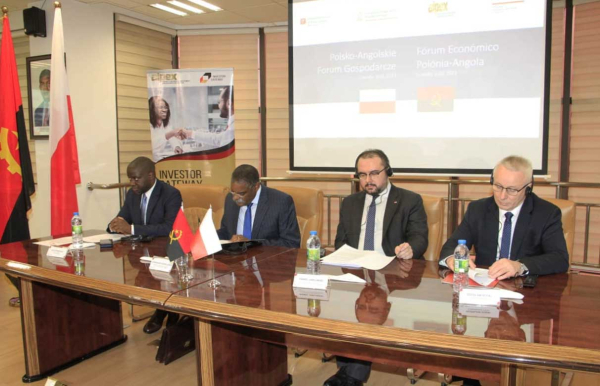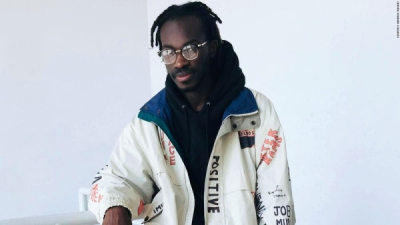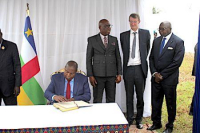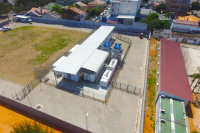On January 5, 2023, Algerian team SevenG won the second prize in the finals of the global competition organized by Huawei. It won the prize thanks to its AI tool that automates farming. At a time when food insecurity is hanging over millions of people all over the world, the seven students who launched the tool believe that it is an efficient and less restrictive solution to make farming more profitable. In an interview with We Are Tech, they present their ambitious project.
What inspired you to launch FarmAI?
We were inspired by the food insecurity affecting Algeria and several countries in the world. We decided to develop an IT system, combined with other tools, which would help create a smart farm, monitor crops, identify pests, build a smart irrigation system, and monitor weather changes. The main idea is to quickly detect and efficiently respond to diseases affecting farms.
How does your solution work?
The early wheat rust disease detection system combines artificial intelligence and drones to monitor wheat fields. The drone flies around the field every 4 days, capturing images of the plants with its camera. This data is then transferred to a deep neural network that performs image classification and analysis to identify possible infections. If a set of data points at a high infection probability, the system will alert the farmer through a mobile app and backend system, allowing the farmer to take the necessary actions to preserve crops and avoid financial losses.
We already have audiences with the Ministries of Economy and Agriculture. They will help us either partner with local drone manufacturers or purchase our drones. In both cases, the great support offered by the President of the Republic to agritech and startups is a real opportunity.
Why did you choose artificial intelligence to power your solution?
We didn't choose to use artificial intelligence (AI) because it's a trendy technology or something like that, but our problem requires a lot of effort, time, and money. So, as we all know, AI improves the speed, accuracy, and efficiency of human actions. Those are the reasons we chose AI for our FarmAI project. At this stage, we are using AI in two key functions which are computer vision and the automation of drones that monitor farms, process images and classify them.
Given the potential of artificial intelligence, why limit the solution to the identification of wheat rust only?
At the beginning of the Tech4good competition, our idea was to develop a system that would help reduce losses in farms and ensure food security in our country. But, as we were time-limited and our project was focused on a specific feature, which is the detection of rust disease, even before the competition, our mentors advised us to pursue this feature. Nevertheless, we plan to add other features, including pest detection and the detection of other diseases. We plan to deploy our solution in more farms.
Our focus on wheat rust stems from the position of wheat in the Algerian economy. Algerians consume more than 100 kilograms of wheat yearly. The country produces and exports the commodity, which is a great source of income for households and the whole country. Our solution helps address food and economic issues not only in Algeria but also in the whole world.
What are SevenG's plans for FarmAi after Tech4Good?
The next step is to test our solution. We have already spoken with farmers and most of them are interested. The solution has been developed in such a way that it is easy to use even for non -tech-savvy individuals. Since most farmers are already using smartphones, they only have to check the reports since everything that has to do with drone calibration, launch, and data analysis is automated.
Once we are done with the testing phase, we will offer free trials to farmers to convince them of the usefulness of our solution. Then, we will seek investors to quickly develop our business and get more clients.
The Angolan tech sector has steadily risen in the past few years. To keep the impetus, the government wants to attract foreign investors who can contribute their expertise to the implementation of its digital strategy.
Last Thursday, Angola hosted a Polish business delegation on the sidelines of the Angola-Poland Business Forum held in its capital that day.
In the opening remarks, Zdzislaw Sokal (photo, right), chairman of the Polish Investment and Trade Agency, indicated that his country is ready to invest in the Angolan key digital infrastructure and cybersecurity since it has great potential in the digital and cybersecurity sectors.
"We have solutions in the sectors of green energy, circular economy, waste management, photovoltaic energies, and smart cities," he said.
According to the Polish executive, Poland is a digitally-advanced country. Public and private services are digitized in several sectors including health, transportation, and mobility. Also, every year, the country releases 11,000 tech graduates on the job market and has 131 telecommunication and communication technology firms.
Therefore, with the future partnerships between the two countries, Angola can capitalize on Polish experience and assets to implement the numerous projects planned in its digital strategy.
In January 2023, China granted Angola a US$249 loan for the construction of a 2,000-kilometer terrestrial optical fiber to facilitate innovation and boost productivity in the public and private sectors.
Samira Njoya
As a digital architect, he develops and supervises digital spaces. He was introduced to programming at 10 and started working for Google at 13. His professional experience includes working with American celebrities like Nipsey Hussle and Kanye West.
Iddris Sandu (photo) is a Ghanaian-born digital architect living in the U.S. He is the founder and CEO of Spatial Labs, a California-based tech infrastructure company that develops Web3 hardware and software.
On its website, Spatial Labs (founded in 2020) presents itself as "a technology infrastructure company that is powering the next generation of Augmented Reality, Blockchain, Omni-channel, and Immersive Experiences - collectively known as the Metaverse." Its LNQ One chip allows brands to integrate loyalty benefits, authentication and tracking services into their products.
On January 26, 2023, it announced the closing of a US$10 million seed round led by Blockchain Capital, with participation from Marcy Venture Partners, a VC firm co-founded by U.S. rapper Jay-Z.
"The metaverse to us is not a virtual space that people go to spend time in. It’s a world in which we can add more context to your real world and make your real world more enjoyable. [...] We’re going to be responsible for catalyzing a completely new generation to be more conscious of their environment; more conscious of how they spend and how they buy," Iddris Sandu told Techcrunch at the time.
The tech enthusiast was introduced to programming at 10. At 11, a Google designer who spotted him at a library offered him an internship position with the Mountainview company. Two years later, he signed his first professional contract with the giant, working on several projects such as Google Plus, a defunct social network. At 15, he designed an app that allowed Narbonne High School (his high school)'s students to easily find their classrooms. For that innovation, former U.S. President Barack Obama awarded him a commendation certificate.
After high school, he declined an MIT offer and instead focused on internships to gain more experience. Between 2014 and 2015, he interned at Boeing, Lockheed Martin, and Raytheon. In 2016, he was contracted as a consultant for Snap Inc. In January 2017, he joined Uber where he created the Autonomous Collision Detection Interface, a driver activity recognition system.
In 2018, he founded ethosDNA and Hakt Labs, respectively design and software development companies.
As a cultural programmer, he worked with U.S. rapper Nipsey Hussle to create The Marathon Clothing, a smart clothing store where he served as the chief technology officer between 2017 and 2018. He also worked as a design and tech consultant for Kanye West's Yeezy LLC. In August 2019, he also worked as an independent contractor for Beautycon Media. Months earlier, he was a mixed reality specialist for Innocean USA.
He has built a tech literacy school in Ghana and implemented several educational programs in California. From 2020 to 2022, he was an internal/external partner for Facebook (now Meta). He has received several awards, including a US$100,000 scholarship from the Peter Thiel foundation.
Melchior Koba
Waves of layoffs are multiplying in major American tech companies. In November, Meta set the tone by cutting 11,000 jobs, and others have followed. Since the beginning of 2023, over 210 tech companies have laid off 68,000 people, mainly in the United States."
The National Association of Telecommunications Subscribers (NATCOMS) has filed a lawsuit against the federal government regarding the proposed imposition of a 5% excise duty on telecommunications services. According to the organization, this decision is unjust in view of the multiple taxes already paid by telecom consumers. In September 2022, the Nigerian government abandoned its plan to introduce a 5% excise duty on telecom services. Today the executive is trying a second time to impose this tax because it wants to primarily rely on taxation to finance its 2023 budget.
Digital technologies are still widely underutilized in microenterprises in Sub-Saharan Africa despite their huge potential for productivity gains, according to a report published on January 23rd by the World Bank. The main factors that prevent African microenterprises from using computers, smartphones, or stock management software on a large scale are the lack of information about these technologies, insufficient digital skills, the high cost, and the lack of suitable infrastructure.
The Central African Republic component of the Central African Backbone (CAB-RCA) project is finally entering its operational phase. The infrastructures were officially handed over to the Central African government on Monday, January 7th in the presence of partners. Spanning 935 km, they connect the Central African Republic (CAR) to the Republic of Congo and Cameroon. The network's commercialization is expected to begin "soon."
Data center operator iColo, a subsidiary of Digital Realty, inaugurated its first operator-neutral data center in Maputo, Mozambique on Wednesday, February 8th. Named MPM1, the infrastructure is expected to allow the company to expand its footprint and meet growing connectivity needs along the East Coast of Africa. The project was first announced in October 2021.
Wholesale bandwidth provider West Indian Ocean Cable Company (WIOCC) has laid the 2Africa fiber optic submarine cable at the Durban Open Access Data Centers (OADC) in KwaZulu-Natal, South Africa. This is the fourth and final landing of this infrastructure in the rainbow nation.
The arrival of 2Africa in KwaZulu-Natal comes about three weeks after Vodacom laid the same cable system in its Gqeberha facilities in Eastern Cape. A month earlier, MTN SA and MTN GlobalConnect landed the cable in Yzerfontein and Duynefontein in the Western Cape.
The Zimbabwean government has announced that it plans to deploy over 300 base stations across the country this year to address connectivity issues, particularly in rural areas. The equipment needed to build these telecoms infrastructures has already been purchased, it has been learned. Installation and operation will be entrusted to NetOne, the mobile branch of the historic operator TelOne. " We have sent in our team to conduct mapping and scoping and we want to make sure that we connect the unconnected." said Jenfan Muswere, Minister of Information, Communication, Technology, and Postal and Courier Services.
More...
The partial privatization of Ethio Telecom is part of the process of liberalizing the Ethiopian telecom market. The government had originally planned to sell 40% of the historic operator. Finally, it announces that it wants to sell "up to 45% of Ethio Telecom's capital to an international company as part of the partial privatization" of the historic operator. To this end, the Ethiopian Ministry of Finance has launched a call for proposals published on Thursday, February 9.
According to Muriel Edjo, Chief Editor at We Are Tech, Africa is adopting 5G faster than expected, but not yet fast enough to meet the exploding demand for connectivity driven by new uses such as videoconferencing, streaming, e-sports, e-health, and remote work. Not to mention the rapid progress of AI and the growing importance of data that are disrupting the economy and public administration. Most of the major African telecom operators are ready to deploy this technology on a large scale. But they face several obstacles that the report "5G in Africa: The Challenges Facing Telecom Operators" aims to identify.
Disrupt Africa has released its annual report on funding for African startups and announces a historic record despite the global slowdown in the venture capital sector. For the first time, the media claims, the $3 billion mark has been surpassed. This is also the first time that this report is made available for free thanks to several sponsors Flat6Labs, MarketForce, 4Di Capital, Mercy Corps Ventures, Newtown Partners, and InsiderPR
The serial entrepreneur has launched and sold several companies. He is focused on the fintech segment, developing solutions that dynamize the sector. With Fyatu, he allows businesses to generate virtual credit cards when needed.
Felix Maroy (photo) is a Congolese entrepreneur and the founder-CEO of fintech startup Fyatu.
Fyatu, founded in 2020, is a modern platform and simple application programming interface developed for innovators who want to issue virtual debit cards. With Fyatu, they can instantaneously create cards to be used for online payments and purchases from over six million websites. The cards come with 3D secure technology to avoid fraudulent use, and advanced and simple card management tools.
"We developed this solution to address the need for electronic payments in the Congolese and African markets, where there are still several businesses and individuals who do not have access to modern and secure payment methods," Felix told TechCabal.
His platform currently boasts over 158,000 active users, with more than 3,000 cards generated monthly and 48 countries covered. In 2016, the entrepreneur launched STREAMZEN, a free music and movie streaming app. With over two million downloads, the app was sold about a year after its creation.
In 2017, he also co-founded Pesapay, an online payment platform. The following year, he launched MerciPro, a software development business he ran until 2020.
Melchior Koba















